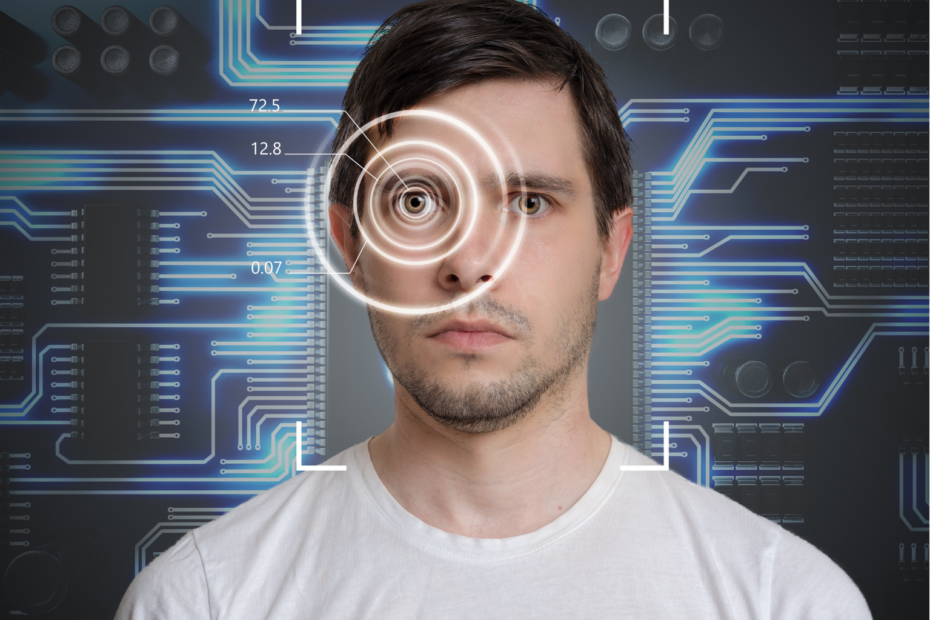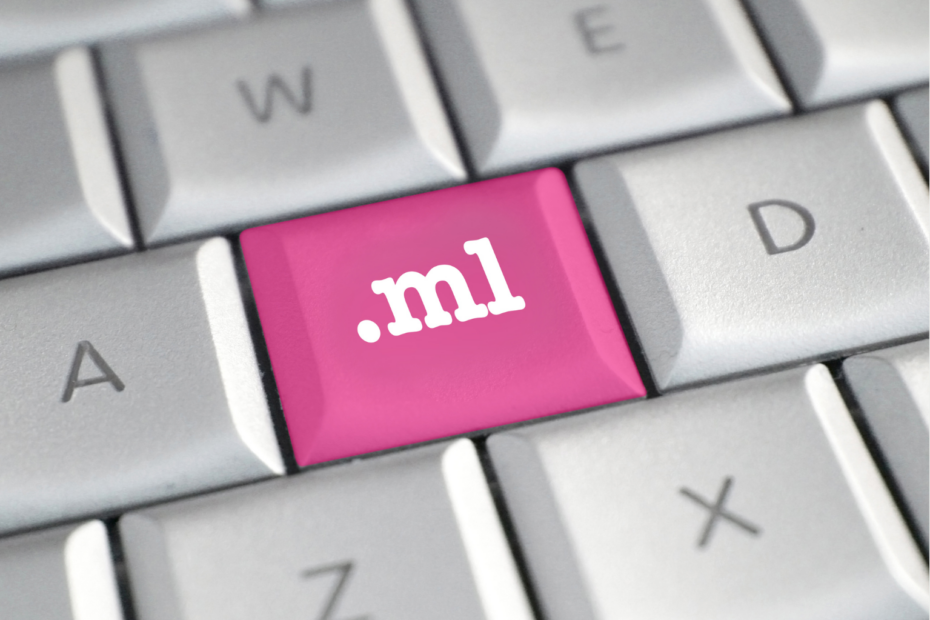In the ever-evolving landscape of computing, a groundbreaking paradigm is taking center stage – Quantum Computing. Unlike its classical counterpart, quantum computing harnesses the perplexing principles of quantum mechanics to revolutionize the way we process information. As we stand on the cusp of a quantum revolution, this article delves into the intricate realm of quantum computing, exploring its foundational concepts, historical evolution, and the profound implications it holds for the future of technology.
Embarking on a journey through the mysterious realm of quantum bits, superposition, and entanglement, we unravel the fundamental building blocks that distinguish quantum computing from classical computing. From the inception of quantum algorithms that defy classical limitations to the quest for achieving quantum supremacy, we navigate the intricate timeline that has shaped the quantum computing landscape.
Our exploration extends to the diverse hardware architectures vying for quantum supremacy – superconducting circuits, trapped ions, and other cutting-edge technologies. As we delve into the potential applications spanning cryptography, optimization, and artificial intelligence, we confront the challenges and limitations that quantum scientists strive to overcome in their quest for quantum dominance.
What is Quantum Computing?
At its core, quantum computing is a transformative departure from classical computing, harnessing the principles of quantum mechanics to process information in ways that defy the norms of classical bits. In this groundbreaking paradigm, quantum bits, or qubits, exist in superposition, representing multiple states simultaneously. Moreover, entanglement enables qubits to share a unique correlation, allowing the state of one qubit to influence the state of another, regardless of distance.
Unlike classical bits that are constrained to exist in a binary state of 0 or 1, qubits can exist in a blend of 0 and 1, opening avenues for parallel computation. Quantum gates manipulate these qubits through quantum operations, creating powerful algorithms that outpace their classical counterparts.
In essence, quantum computing is not just about processing more data faster; it represents a fundamental shift in how information is processed, holding the potential to solve complex problems that were once deemed insurmountable. As we venture into the quantum realm, we unravel the intricacies of superposition, entanglement, and the quantum gates that define the future of computation.
What is the historical background of Quantum Computing?
The journey into the realm of quantum computing is a captivating odyssey, shaped by pioneering ideas and scientific breakthroughs that have redefined the boundaries of classical computing. Here, we embark on a historical exploration, tracing the key milestones that have propelled quantum computing from conceptual inception to its current state on the precipice of transformative potential.
- Birth of Quantum Mechanics: The roots of quantum computing intertwine with the emergence of quantum mechanics in the early 20th century. Pioneering minds like Max Planck, Albert Einstein, and Niels Bohr laid the foundation by unraveling the peculiar behavior of particles at the quantum level.
- Conceptual Birth of Quantum Computing: The seeds of quantum computing were sown in the fertile soil of theoretical physics. In 1980, physicist Richard Feynman proposed the idea of simulating quantum systems using a quantum computer, recognizing the limitations of classical computers in modeling quantum phenomena.
- Algorithmic Enlightenment: The quantum revolution gained momentum with the discovery of groundbreaking algorithms. In 1994, Peter Shor devised an algorithm capable of factoring large numbers exponentially faster than classical algorithms—a feat with profound implications for cryptography. Simultaneously, Lov Grover introduced a quantum search algorithm that promised exponential speedup for certain search problems.
- Birth of Quantum Bits – Qubits: The concept of qubits emerged as a defining feature of quantum computing. In the late 20th century, David Deutsch and Richard Jozsa laid the groundwork for quantum algorithms, emphasizing the unique properties of qubits, such as superposition and entanglement.
- Experimental Pioneers: The realization of quantum computing shifted from theory to experimental endeavors. In the early 2000s, researchers like Isaac Chuang and David Wineland made significant strides in manipulating qubits, marking a pivotal era in the practical pursuit of quantum computation.
- Rise of Quantum Hardware: The last decade witnessed a surge in quantum hardware development. Companies and research institutions globally embarked on constructing diverse quantum architectures, from superconducting circuits to trapped ions, each vying to achieve quantum supremacy—the point at which a quantum computer outperforms classical computers in specific tasks.
As we delve into the historical tapestry of quantum computing, each thread represents a visionary insight or groundbreaking discovery that has propelled us toward the realization of a new era in computation—one where the principles of quantum mechanics redefine the boundaries of what is computationally possible.
What are prominent Quantum Algorithms?
In the quantum computing landscape, algorithms stand as beacons of innovation, challenging the norms of classical computation and paving the way for transformative capabilities. Here, we unravel the brilliance of prominent quantum algorithms that have ignited a paradigm shift in the realm of computation.
Shor’s Algorithm: Unlocking Cryptographic Fortresses
Birthed by Peter Shor in 1994, Shor’s Algorithm revolutionized the field by efficiently factoring large numbers exponentially faster than classical algorithms. Its profound impact resonates in the realm of cryptography, where it threatens classical cryptographic systems, particularly those relying on the difficulty of factoring large numbers.
Grover’s Algorithm: Quantum Searching’s Elegance
Conceived by Lov Grover in 1996, Grover’s Algorithm elegantly accelerates search operations. Offering a quadratic speedup over classical search algorithms, it enhances efficiency across diverse applications, from database searches to optimization problems, making it a quantum workhorse for unstructured data exploration.
Quantum Fourier Transform: Harmony in Quantum Signal Processing
Integral to many quantum algorithms, the Quantum Fourier Transform underpins Shor’s Algorithm and plays a pivotal role in quantum signal processing. Its efficiency in transforming periodic functions serves as a cornerstone in quantum computation.
Variational Quantum Eigensolver (VQE): Charting Quantum Chemistry
Emerging as a quantum-classical hybrid approach, VQE addresses challenges in quantum chemistry simulations. Leveraging quantum processing for specific tasks while utilizing classical optimization, VQE holds promise for unraveling complex molecular structures and reactions.
Quantum Machine Learning Algorithms: Bridging the Quantum-Classical Divide
A collective endeavor, quantum machine learning algorithms explore the synergy between quantum and classical computing. Algorithms like Quantum Support Vector Machines and Quantum Neural Networks aim to harness quantum advantages in enhancing machine learning tasks, showcasing the potential for quantum-classical collaborations.
Deustch-Jozsa Algorithm: Oracle Inquiry Reimagined
Proposed by David Deutsch and Richard Jozsa in 1992, this algorithm exemplifies quantum computing’s ability to outperform classical counterparts. By determining whether a function is constant or balanced with a single query, it provides exponential speedup compared to classical algorithms.
As we navigate these quantum algorithmic marvels, their collective impact illuminates the transformative power quantum computing holds. From revolutionizing cryptography to optimizing searches and simulating quantum systems, these algorithms exemplify the quantum leap into a future where computation transcends classical boundaries.
Which hardware is needed for Quantum Computing?
In our quest for the transformative promises of quantum computing, the hardware that underpins this revolutionary field emerges as a diverse and dynamic landscape. Among the contenders are Superconducting Circuits, birthed in the 1990s, leveraging superconductivity at ultra-low temperatures through Josephson junctions. These circuits, scalable and promising for large-scale quantum processors, redefine the possibilities of computation.
Trapped Ions, an alternative avenue, manipulate individual ions using electromagnetic fields and laser pulses. Offering prolonged coherence times and high-fidelity operations, they beckon as a promising route towards constructing fault-tolerant quantum computers.
Meanwhile, the fascinating world of Topological Qubits delves into the realm of anyons—quasi-particles with unique braiding properties. These qubits present an intriguing prospect for inherently robust quantum computation, resilient against specific types of errors.
Quantum Dots, semiconductor-based entities confining electrons, embody a potential path forward. Despite their promise of scalability and compatibility with existing semiconductor technologies, challenges in sustaining qubit coherence loom.
Photonic Quantum Computing, on the other hand, exploits the quantum properties of light, encoding qubits in photon states. Its natural compatibility with optical fiber networks positions it as a contender for quantum communication applications.
In a surprising twist, Diamond Nitrogen-Vacancy Centers utilize defects in the crystal lattice to craft qubits, excelling particularly in quantum sensing applications beyond conventional quantum computing.
Then, there’s the specialized realm of Quantum Annealers, tailored to solve optimization problems. Pioneers like D-Wave delve into these processors, aiming to address specific challenges encountered across industries.
As we navigate this quantum hardware panorama, each architecture unfurls a unique tapestry of strengths and challenges. The relentless pursuit of fault-tolerant, scalable quantum processors remains the driving force, pointing toward a future where quantum hardware unlocks the full spectrum of quantum computing’s potential.
What is Quantum Supremacy?
Quantum supremacy signifies a watershed moment in the evolution of quantum computing, representing the juncture at which a quantum computer surpasses the computational abilities of the most advanced classical supercomputers. Unlike mere incremental advancements, achieving quantum supremacy heralds a transformative leap, showcasing the unique computational prowess of quantum devices.
At its core, quantum supremacy pivots around the execution of a specific task—typically engineered to be complex for classical computers yet tailor-made for quantum processors. Google’s renowned achievement in 2019 marked a historic milestone, with their quantum processor, Sycamore, performing a task in a mere 200 seconds that would take the world’s most advanced classical supercomputers thousands of years to complete.
The realization of quantum supremacy doesn’t imply that quantum computers are universally superior for all computations. Instead, it underscores their potential to tackle specific problems exponentially faster, unveiling a new frontier of computational efficiency.
This paradigm shift not only showcases the raw computational power of quantum devices but also serves as a catalyst for exploring novel applications and algorithms. As quantum supremacy becomes a tangible reality, it sparks a new era in computing, compelling researchers and industries to reimagine the boundaries of what is computationally achievable.
What are the applications of Quantum Computing?
The realm of quantum computing holds promise for a myriad of applications that transcend the capabilities of classical computation. As quantum devices inch closer to practical usability, their potential impact spans various domains, offering transformative solutions to complex problems. Here, we delve into the burgeoning landscape of quantum computing applications.
- Cryptography and Security: Quantum computing’s prowess threatens conventional cryptographic methods. However, it also presents an opportunity through quantum key distribution (QKD), a secure communication method leveraging quantum principles to enhance data encryption.
- Optimization Problems: Quantum computers excel in solving optimization problems across industries. From supply chain logistics to financial portfolio optimization, their ability to explore multiple possibilities simultaneously offers unprecedented efficiency.
- Drug Discovery and Molecular Simulation: Quantum computers provide a quantum advantage in simulating molecular structures and interactions. This capability accelerates drug discovery processes by accurately modeling complex chemical reactions and interactions.
- Machine Learning and Data Analysis: Quantum machine learning algorithms aim to outperform classical counterparts in tasks like pattern recognition and data analysis. Quantum computing’s inherent parallelism enhances the speed of processing large datasets.
- Climate Modeling and Simulation: Quantum computers hold promise in simulating complex climate models, allowing for more accurate predictions and analyses of climate change. This application has the potential to revolutionize our understanding of environmental dynamics.
- Financial Modeling: Quantum computing’s ability to handle intricate mathematical models positions it as a game-changer in financial industries. Tasks such as risk assessment, portfolio optimization, and option pricing stand to benefit from quantum computational power.
- Artificial Intelligence Enhancements: Quantum computing complements classical AI algorithms, offering potential speedups in training and optimization processes. Quantum-enhanced AI promises breakthroughs in solving complex problems in machine learning and pattern recognition.
- Supply Chain and Logistics: Quantum algorithms can optimize supply chain logistics, solving complex routing and scheduling problems efficiently. This application streamlines processes and reduces costs in intricate supply chain networks.
- Traffic Optimization: Quantum computing’s parallel processing capabilities make it well-suited for optimizing traffic flow in complex urban environments. This application has the potential to alleviate congestion and enhance transportation efficiency.
- Space Exploration: Quantum computing contributes to space exploration by solving complex calculations involved in trajectory optimization, satellite communication, and simulating quantum phenomena relevant to astrophysics.
As quantum computing continues to evolve, these applications represent just a glimpse of its potential impact across diverse fields. While challenges persist in achieving fault-tolerant, scalable quantum processors, the horizon is bright with possibilities that could reshape the landscape of computational problem-solving.
What are the challenges and limitations of Quantum Computing?
In the pursuit of quantum computing’s transformative potential, there exist notable challenges and limitations that underscore the complexity of this frontier.
One paramount concern is the issue of decoherence—a phenomenon where quantum information is lost due to environmental interactions. This poses a significant obstacle in maintaining the delicate coherence of qubits, essential for robust quantum computation.
Stability and scalability of qubits are also formidable challenges. Creating qubits with extended coherence times and ensuring the addition of more qubits without compromising performance are intricate tasks. The demanding requirements for implementing and maintaining quantum hardware, such as superconducting circuits and trapped ions, further add to the complexity.
The development of quantum software tools, languages, and compilers is a crucial aspect that demands attention. Crafting algorithms for quantum computers necessitates a paradigm shift from classical programming methodologies.
Quantum error correction, a fundamental requirement for building fault-tolerant quantum computers, presents challenges of its own. Existing error correction methods are resource-intensive, demanding a large number of physical qubits to create a single error-resistant logical qubit.
Qubit connectivity is pivotal for quantum computation, yet maintaining robust connectivity between qubits over longer distances remains a considerable challenge. This directly impacts the design and functionality of quantum processors.
Quantum processors are sensitive to external factors such as thermal noise and electromagnetic interference. Shielding quantum systems from these influences and maintaining stable operating conditions pose ongoing challenges.
Efficiently storing and retrieving quantum information, a necessity for many quantum algorithms, remains a bottleneck in the advancement of quantum computing. Developing reliable and scalable quantum memory solutions is imperative for expanding the applicability of quantum computers.
Energy consumption is a growing concern, particularly as quantum operations, especially at low temperatures, can be energy-intensive. Addressing these consumption challenges is crucial for ensuring the sustainability and practical usability of quantum computing technologies.
Finally, the lack of standardized metrics for validating and benchmarking quantum computers poses a significant challenge. Establishing reliable methods to assess quantum processor performance is essential for meaningful comparisons between different platforms.
Navigating these multifaceted challenges demands collaborative efforts from researchers, engineers, and industry stakeholders. Overcoming these limitations holds the key to unlocking the full transformative potential of quantum computing.
How is Quantum Computing used in Machine Learning?
The marriage of quantum computing and machine learning is poised to reshape the landscape of computational possibilities, promising breakthroughs in solving complex problems at an unprecedented pace. While the field is still in its infancy, the potential applications and implications for machine learning are vast.
One of the most anticipated applications lies in the realm of optimization problems. Quantum computers excel in exploring multiple possibilities simultaneously, a capability that can significantly enhance optimization tasks critical to machine learning, such as parameter tuning, model training, and resource allocation.
Quantum machine learning algorithms, designed to leverage the intrinsic parallelism of quantum systems, aim to outperform classical counterparts in certain tasks. These algorithms hold promise for tasks like pattern recognition, clustering, and data analysis, where the quantum advantage can provide exponential speedup.
Moreover, quantum computers can potentially revolutionize the field of linear algebra—a cornerstone of machine learning computations. Quantum algorithms for linear algebra operations, such as matrix inversion and singular value decomposition, have the potential to outperform classical counterparts, thereby accelerating various machine learning algorithms.
Quantum-enhanced support vector machines (SVMs) and quantum neural networks are also areas of active exploration. Quantum SVMs, in particular, hold promise for efficiently classifying data in high-dimensional spaces, a task that poses challenges for classical SVMs.
Another intriguing avenue is the use of quantum-inspired algorithms. While not fully quantum, these algorithms leverage quantum computing principles to enhance classical machine learning algorithms. They provide a bridge between classical and quantum approaches, offering potential performance boosts on classical hardware.
However, it’s important to note that integrating quantum computing into machine learning workflows comes with its own set of challenges. The limited availability of large-scale, fault-tolerant quantum computers poses a practical hurdle. Developing quantum algorithms that can outperform classical counterparts for a broader range of machine learning tasks remains an ongoing research challenge.
In summary, the intersection of quantum computing and machine learning holds immense promise for transforming how we approach computational challenges. While the full realization of quantum-enhanced machine learning is on the horizon, ongoing research and advancements in quantum technologies continue to pave the way for this symbiotic relationship to unfold.
This is what you should take with you
- Quantum computing marks a paradigm shift, holding the potential to revolutionize computational capabilities.
- Challenges like decoherence, qubit stability, and scalable hardware hinder seamless progress in quantum computing.
- Applications span cryptography, optimization problems, drug discovery, and climate modeling, showcasing diverse impact.
- Quantum supremacy, achieved when a quantum computer outperforms classical counterparts, signifies a transformative milestone.
- Despite hurdles, ongoing research and collaborative efforts aim to unlock the full potential of quantum computing.
- The marriage of quantum computing and machine learning opens new avenues for optimization tasks, pattern recognition, and linear algebra.
- Quantum-inspired algorithms bridge classical and quantum approaches, offering performance boosts on classical hardware.
- While challenges persist, the synergy between quantum computing and various domains promises a future of unparalleled computational possibilities.
What is Anomaly Detection?
Discover effective anomaly detection techniques in data analysis. Detect outliers and unusual patterns for improved insights. Learn more now!
What is the T5-Model?
Unlocking Text Generation: Discover the Power of T5 Model for Advanced NLP Tasks - Learn Implementation and Benefits.
What is MLOps?
Discover the world of MLOps and learn how it revolutionizes machine learning deployments. Explore key concepts and best practices.
What is Jupyter Notebook?
Learn how to boost your productivity with Jupyter notebook! Discover tips, tricks, and best practices for data science and coding. Get started now.
What is ChatGPT?
Discover the power of ChatGPT - the cutting-edge language model trained by OpenAI. Learn how ChatGPT is changing the game in NLP.
Other Articles on the Topic of Quantum Computing
Here you can find interesting research und up-to-date publications about Quantum Computing.





